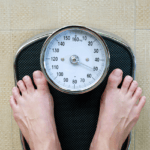Many individuals will be on the road this holiday season to celebrate Christmas, New Year’s, and other joyous occasions. Keeping an eye out for symptoms of COVID-19, getting vaccinated as soon as it is your turn, and always adhering to public health and social measures to help prevent transmission are all crucial in light of the rise in COVID-19 cases in some parts of the world and the emergence of more transmissible variants.
If you’re going to be Flights to Bangalore from USA traveling around the holidays, when the coronavirus is most active, this is crucial. It is essential to be attentive even if you get a negative COVID-19 test before your travel since you may still be in the early stage of sickness.
To the Traveler: Some Words of Wisdom
Suppose you’re going to be traveling for the holidays, whether by aircraft, train, bus, jeepney, boat, tuk-tuk, ride-hailing cab, truck, or automobile. In that case, you must keep up your preventative steps to ensure your and others’ safety from the highly contagious and potentially fatal COVID-19 virus. Get vaccinated as soon as it is your time and take all the precautionary steps you can before, during, and after travel.
- It would help if you got your shot as soon as it’s time. Get the facts about immunizations.
- It would help if you still took precautions, including maintaining a distance of 1 meter from other passengers, always wearing a mask that covers your nose, mouth, and chin, stifling coughs and sneezes, and washing your hands often. Don’t forget to pack additional masks, hand sanitizer with alcohol, and disinfectant wipes when you USA to Bangalore Flights travel.
- Ventilate your automobile, bus, or other vehicle’s interior by opening windows whenever feasible. Study the topic of airflow more deeply.
- To be healthy and safe when traveling, follow all applicable local, national, and international rules.
Do you have concerns about your health?
Do you have a greater risk of severe disease from COVID-19 because you are over 60, pregnant, or have a preexisting health condition?
Take the following precautions to ensure a safe trip. You should also be ready to make last-minute changes to your itinerary if the coronavirus risk is high, and you should never fly if you are ill.
They are considering a trip to see a loved one who COVID-19 could severely afflict.
Do you plan on visiting someone particularly vulnerable to severe coronavirus illness? It would help if you got your shot as soon as it’s your time. Keep up your preventive precautions, such as staying at least 1 meter apart from people, wearing a mask, concealing coughs and sneezes, washing hands, and opening windows, even if you are completely vaccinated. If you’re sick, it’s best to cancel your visit.
Meeting in a public place might be dangerous; therefore, think about holding your gathering outside or communicating over email or the phone. If you want to protect the health of others around you against COVID-19, you may need to alter your plans.
A word of caution before you come
- Even after you’ve arrived at your location, you should remain vigilant in your efforts to prevent the spread of COVID-19.
- Distances of at least 1 meter should be during disembarkation, in lines, and when using public transportation.
- When arriving at a station, port, or airport, follow the COVID-19 protocol established by local authorities.
- Whenever you can crack open the windows of your motel room or wherever you’re staying
You should seek medical attention immediately if you have any signs of COVID-19. In some cases, COVID-19 causes no symptoms; nonetheless, fever, dry cough, and extreme exhaustion virus manifestations. Loss of taste or smell, nasal congestion, conjunctivitis (red eyes), sore throat, headache, muscle or joint discomfort, skin rash, nausea or vomiting, diarrhea, chills, and dizziness are some less prevalent symptoms. Examine the signs and learn more about them.
Stay at your hotel and contact a doctor or the COVID-19 hotline if you have symptoms to find out when you tested and what else you can do. Close contacts of an affected person may also choose to quarantine themselves and get tried. Once again, it’s essential to listen to the advice of those in the area.
Seek emergency medical treatment for difficulty breathing or chest pain/pressure. Before needing medical attention, contact a health care practitioner or a crisis hotline.
Don’t take anything for granted; always be ready for the unexpected
As a traveler, one of the most important things you can do for your health is to plan. That is truer than ever during COVID-19. If you need help with what to bring on your trip, the American Academy of Family Physicians has compiled a helpful list of essentials.
Airlines probably won’t have time to scrub every surface clean between flights. The tray table, armrests, and seat belt buckles are just some surfaces passengers often touch during a trip; if you’re worried about germs, you may clean them all using antibacterial wipes.
- Energizing, protein-rich
- The Granola Bar
- Gum for use during altitude adjustments
- Aspirin-like drops for the cough
Everything you need to be healthy while away (luggage can get misdirected or lost, so you should keep these with you)
- Resources for diagnosing diabetes
- Soothing cream for the face
- Headphones, earplugs, or an eye mask
- Throwing in a sweatshirt (this can function as a blanket or neck pillow)
There is usually only room for a tiny carry-on and one personal item on an airplane, so pack accordingly and know where to locate your necessities, so you don’t have to rustle through your luggage and annoy your neighbor.
Protect your skin from the sun by using sunscreen
It may come as a surprise to regular fliers to hear that pilots have an increased risk of skin cancer, as reported in Environmental Health, and that flight attendants face elevated skin and breast cancer risks, as reported in the International Journal of Cancer. Even though more research in this area, it makes sense for frequent fliers to protect themselves from the sun by always wearing sunscreen.
Don’t drink alcohol when flying
Even if you suffer from anxiety and think a heavy drink would help, avoid alcohol. Quay Snyder, an aircraft medical specialist, warned the Washington Post about drinking in low-oxygen settings. It may also impair your jet lag recovery when you arrive. Keep hydrated with water or decaffeinated drinks until you land.
Muscle Up
Keeping your veins from clotting during a flight is one of the most time-honored pieces of advice for safe air travel (DVT). Those who have poor circulation, smoke, are pregnant, have just had surgery, or suffer from cardiovascular disease or some malignancies should take extra care to prevent deep vein thrombosis (DVT) during flights.















